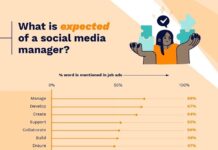Consumers have an expectation that brands will listen to them on Twitter. Gone are the days of sending off complaints via snail mail and waiting 6-8 weeks for a reply. Now, customers can shoot off a 140-character tweet and expect a reply within minutes. New research by Maritz shows that nearly half of those who tweet a complaint at a brand expected the company to read and respond to their tweet.
But are brands listening and responding? According to this study, just under one-third of consumers received a response from brands they tweeted. Which means that 71% of companies are not listening (or responding) on Twitter, and are losing out on the “overwhelmingly positive” reaction of consumers when they feel that brands are hearing them.
When brands take the time to actually respond to consumers, 75% are satisfied with the response received. Only a few – 15% – were “very or somewhat dissatisfied” with the company’s response.
86% of those who complain to brands on Twitter would “like or love” to hear from the brand regarding their complaint. However, when consumers reach out for a specific reason, brands should be careful to respond to the actual complaint: “a striking 63 percent said they would hate or not like it if the company contacted them about something other than their complaint.”
Consumer expectations for brands on Twitter also varied by age. Older consumers were more likely to expect brands to respond via Twitter, especially those 55 and older. Younger consumers, while often more active on Twitter, were less hopeful that brands would respond to their complaints. Women consumers over 35 were the happiest about receiving a response from brands; they liked hearing from the company 10% more than the average.
In simple terms, this is customer service on a newer and faster platform, where complaints and responses are public. Brands can turn this to their advantage, and help build loyalty through the quality of their responses.
The airline industry offers great examples for how social media, including Twitter, can be a highly effective tool for customer service. Royal Dutch Airlines KLM recently announced 24-hr social media customer service, and a recent ranking of US airlines in social media noted that Virgin America, JetBlue and SouthWest Airlines all saw a vast majority of positive comments on social media sites.
Maritz Research surveyed an online panel of 1,298 US consumers between September 9 and 12, 2011. These consumers had pre-identified themselves as Twitter users who frequently tweet, had complained via Twitter about a company with whom they do business, and who were at least 18 years of age.


